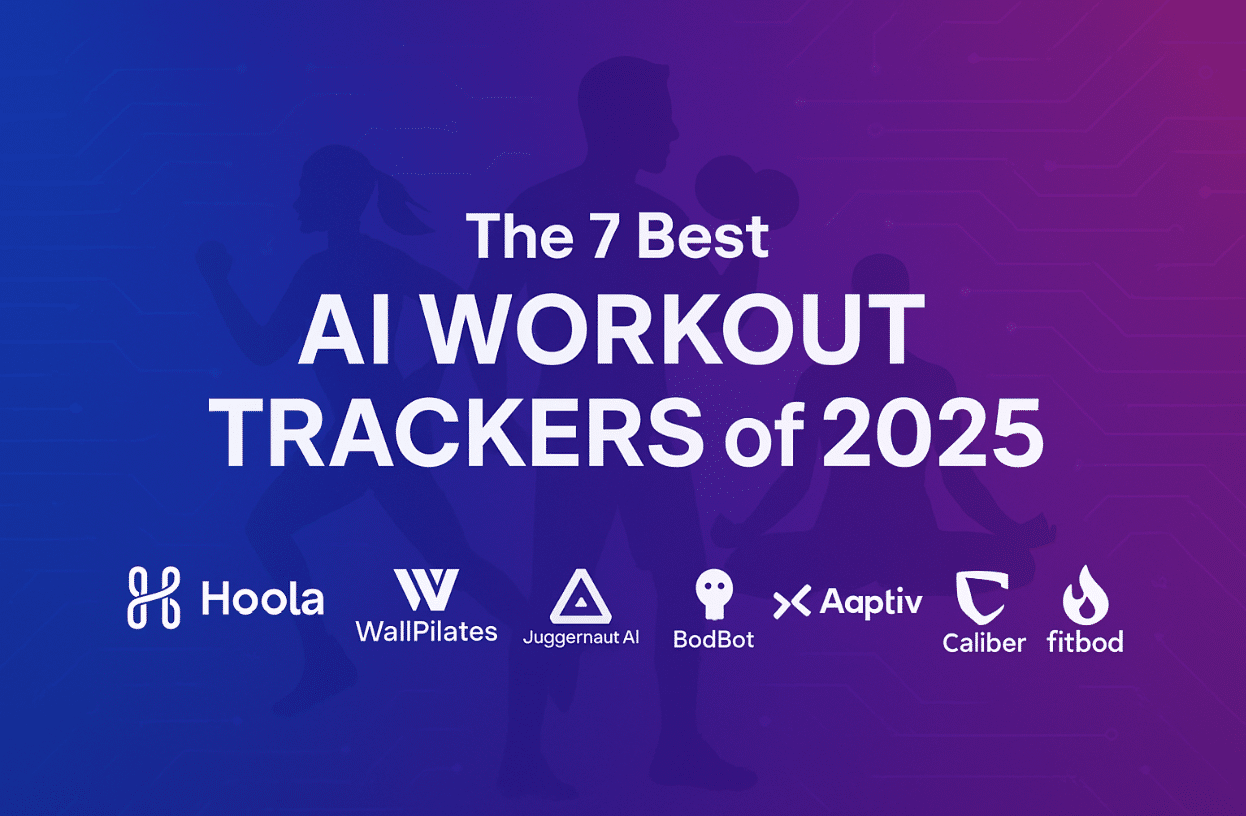 AI workout trackers have shifted from novelty to necessity. In 2025 these pocket-size coaches record every rep, gauge recovery, and rewrite tomorrow’s plan before you towel off. In February 2025 Peloton rolled out its Peloton IQ engine to every new Bike, Tread, and Row, serving real-time form cues and class suggestions based on your last five minutes of movement. Yet many apps still wear an “AI” label without adapting at all. After months of testing, we narrowed the field to seven trackers that truly respond to your progress—and we’ll introduce them below.
AI workout trackers have shifted from novelty to necessity. In 2025 these pocket-size coaches record every rep, gauge recovery, and rewrite tomorrow’s plan before you towel off. In February 2025 Peloton rolled out its Peloton IQ engine to every new Bike, Tread, and Row, serving real-time form cues and class suggestions based on your last five minutes of movement. Yet many apps still wear an “AI” label without adapting at all. After months of testing, we narrowed the field to seven trackers that truly respond to your progress—and we’ll introduce them below.
What exactly is an AI workout tracker?
An AI workout tracker works like a pocket-size coach. It records every rep, pace, and recovery score, then reshapes tomorrow’s plan so you improve without burning out. Unlike a static PDF routine, the algorithm adjusts load, rest, and exercise choice after each session.
What does that look like in practice? You may see automatic weight bumps when you hit a target rep range, lighter work when recovery scores dip, quick swaps for sore joints, and, in some apps, live form cues from your phone’s camera. Some platforms push adaptation further: Hoola pairs on-screen class suggestions with a calorie engine that raises or lowers daily nutrition targets to match the work you just logged. A 2023 randomized trial published on PubMed found that lifters who received AI coaching improved squat form about fourfold in two weeks compared with a video-only control group.
Faster mobile chips now let models run on the device. Oura’s February 2025 ring update and Google’s upcoming Pixel AI health coach both rely on this privacy-first approach, according to Axios. With that leap, real-time adaptation is the baseline, not a luxury.
During our review we scored dozens of apps against five essentials:
- Session-by-session adaptation, not weekly suggestions
- Guidance that welcomes beginners yet scales for pros
- Rich tracking: charts, PR logs, and wearable syncs
- Clear specialty such as strength, cardio, or holistic wellness
- Credibility plus transparent privacy practices
Only seven apps cleared every bar. You’ll meet them in the next sections.
Hoola – holistic AI fitness app with classes
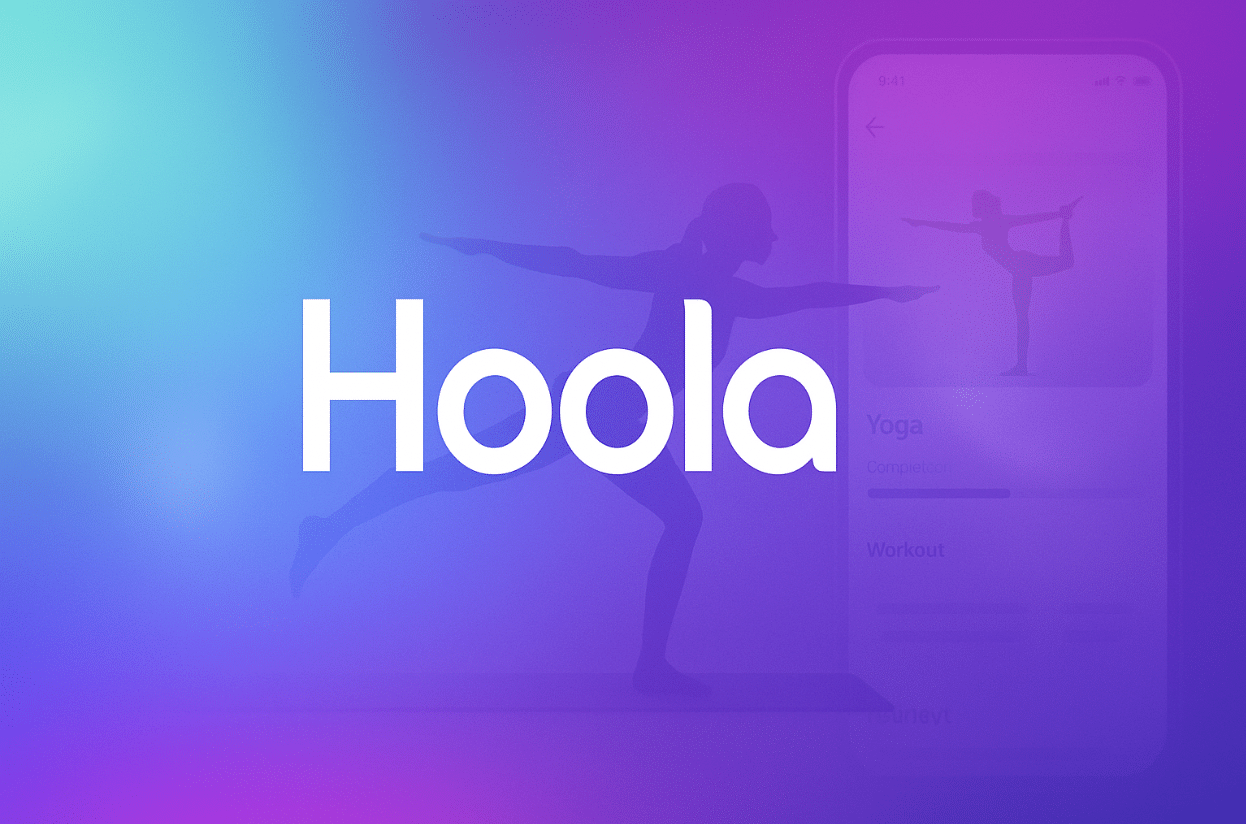
Hoola positions itself as a one-stop studio and dietitian for busy professionals. Open the app and you see rows of on-demand classes (strength circuits, dance cardio, yoga, breathwork) streamed in HD. Behind that catalog sits an adaptive planner: finish three intermediate HIIT videos in a week and tomorrow’s tile may upgrade to an advanced session or a mobility flow to spare your joints.
What sets Hoola apart is its calorie engine. The same algorithm that curates classes also adjusts daily intake targets and suggests meals, nudging protein up after heavy strength days or dialing carbs back during deload weeks. The startup launched in November 2024 and remains in early access; a public “Coming Soon” page promises unlimited classes plus AI nutrition for about $15.99 per month after a free trial. Ratings and full rollout details are pending as of October 2025, so early adopters should expect rapid iteration.
Choose Hoola if you want workouts, recovery guidance, and basic nutrition coaching under one roof. Power athletes chasing barbell records may prefer a specialized strength app such as Fitbod.
WallPilates – AI-guided wall Pilates for low-impact body sculpting
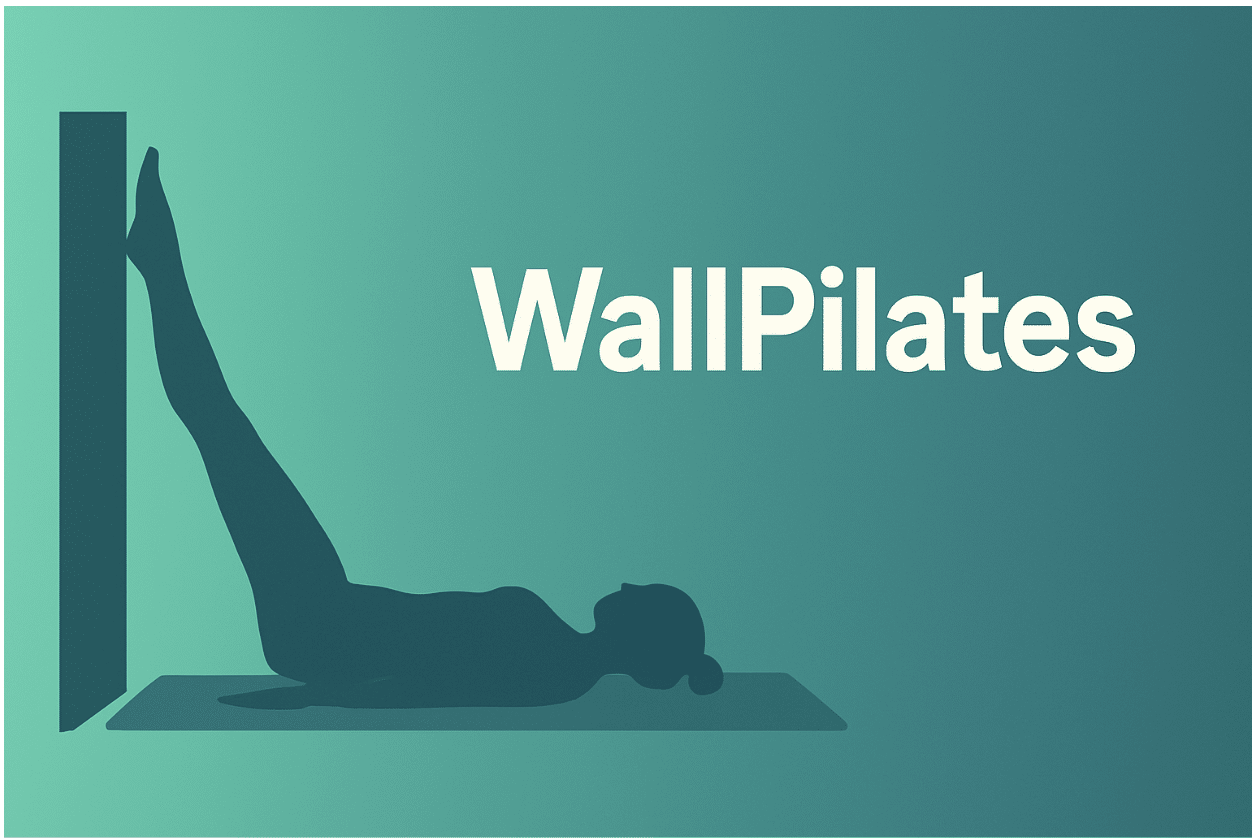
Picture your bedroom wall standing in for a Pilates reformer—then giving you set-by-set instructions. After a 60-second quiz, WallPilates builds a 28-day program that scales reps, holds, and rest times to your goals and recovery. A “smart AI fitness coach” surfaces form tips and swaps moves when you flag back pain or fatigue, so every wall slide, glute press, and hollow hold lands at the right difficulty.
Beyond the daily wall circuits, the app tackles calorie and water trackers, progress photos, and core-plus-booty challenges to keep streaks alive. Recent updates added chair-yoga options for active-rest days and let you retime intervals up to 85 seconds for slower, strength-focused work.
Choose WallPilates if you’re rehabbing joints, crave Pilates tone without a reformer, or want an at-home routine that won’t wake the neighbors. The app is free to download with a 4.7-star average from 9 k+ iOS reviews; full access runs about $9.99 per month or $39.99 per year on iOS and Android, and it’s crossed 100 k downloads on Google Play as of October 2025
JuggernautAI – adaptive powerlifting program
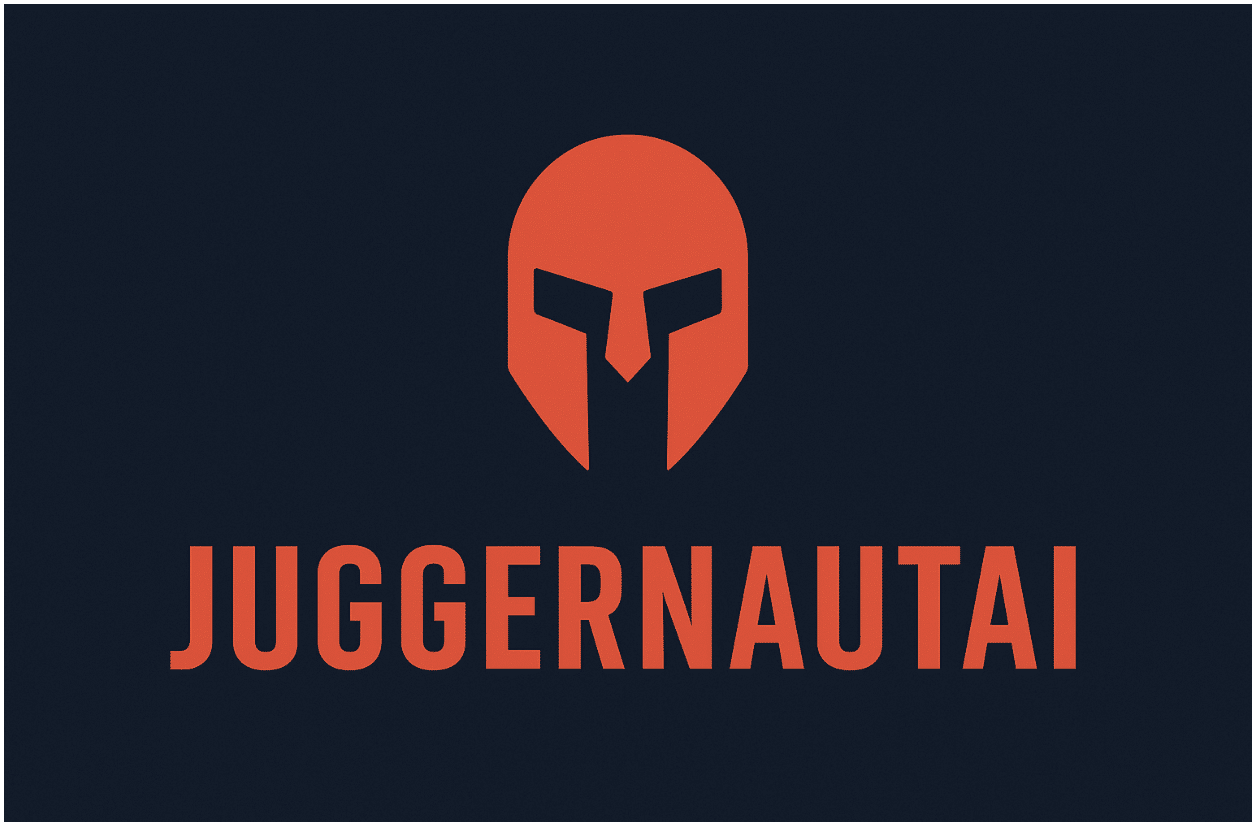
JuggernautAI speaks fluent kilo math. Enter your current maxes, weekly training slots, and meet timeline, and the app builds a hypertrophy-to-peaking cycle. Each AMRAP set and RPE tag feeds the model. Grind a triple at RPE 9? Next week the load eases. Blow past the target? The algorithm bumps weight to chase a new PR.
Start with a two-week free trial; afterward the service costs about $34.99 per month or $349.99 per year on iOS and Android. According to JuggernautAI, Version 2.5, released July 2025, refined volume calculations using data from hundreds of thousands of logged workouts and added hybrid power-building tracks. The app holds a 4.9-star average rating across both app stores as of September 2025 and offers more than 300 technique videos, weekly Q&As, and an active lifter community.
Choose JuggernautAI if your main goal is raising squat, bench, and deadlift totals. Casual exercisers or class lovers will find richer options elsewhere, while serious lifters gain a data-driven plan that adapts as fast as their bar speed.
BodBot – personalized full-body fitness coach
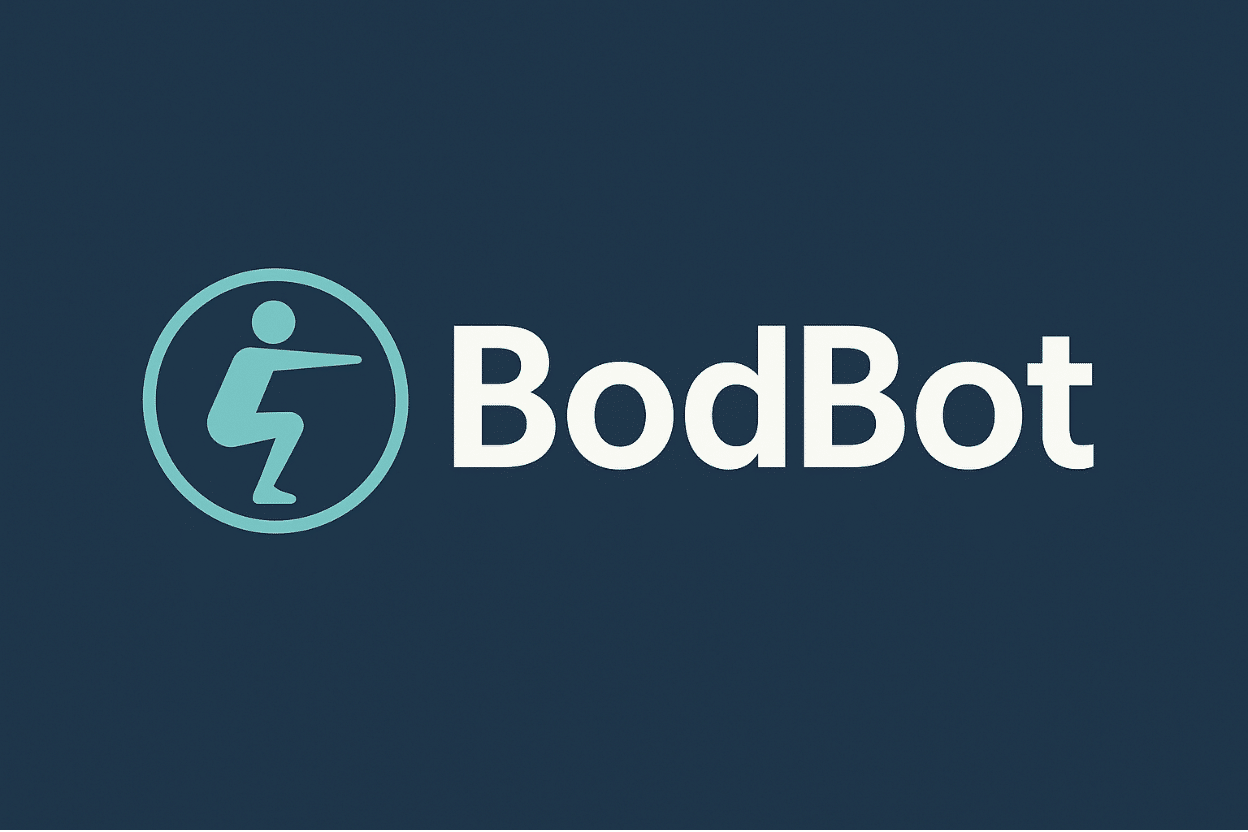
BodBot plans workouts like a puzzle master placing tiles: each choice depends on the piece you laid a moment ago. Set your goals, schedule, equipment, and any aches, and the app builds a routine that adapts the instant life or fatigue interrupts. Skip Tuesday’s session? Wednesday rearranges itself to fill the gap without overloading muscles.
The platform has logged more than five million downloads and holds a 4.5-star average from over 51,000 Google Play reviews as of August 2025. A decade of in-house exercise-science research powers its Adaptive Workout Intelligence, which swaps movements when you report pain or breeze through a set. Tight hamstrings prompt a hip-hinge mobility drill; surplus energy at the end of a circuit earns tougher progressions next time.
BodBot is a generalist: strength, cardio, mobility, and corrective moves share one calendar. That breadth helps busy users juggling mixed goals or recovering from minor injuries, while pure powerlifters may prefer a specialty app such as JuggernautAI. Pricing starts at about $9.99 per month after a limited free tier on iOS and Android.
Aaptiv Coach – AI-powered audio workouts
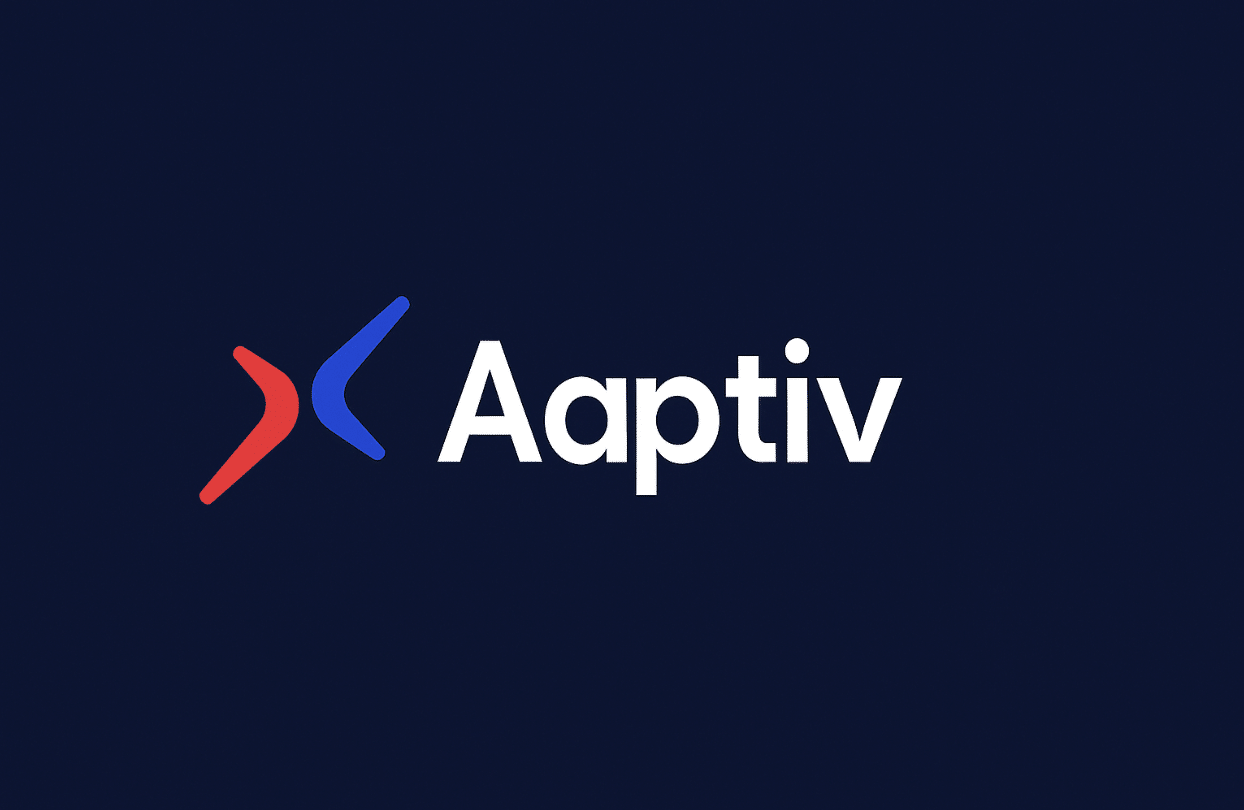
If staring at your phone mid-run interrupts your rhythm, Aaptiv keeps your eyes forward. The Coach feature reviews your goal—5K, weight loss, or stress relief—and builds a weekly calendar from more than 10,000 trainer-led audio classes set to licensed music. After each session you tap a quick rating, and the engine lengthens a progression run or eases tomorrow’s kettlebell circuit based on that feedback.
The format shines outdoors or on cardio machines because guidance stays in your ears. According to Aaptiv, Version 16.0, released September 8, 2025, powers a 4.7-star iOS app with about 57,000 public ratings as of October 2025. A seven-day trial precedes a $14.99 monthly subscription on iOS and Android.
Choose Aaptiv if you thrive on a coach’s voice and tempo-matched playlists. Visual learners or heavy lifters tracking exact loads may prefer a video-centric option like Fitbod.
Caliber – hybrid AI and human coaching
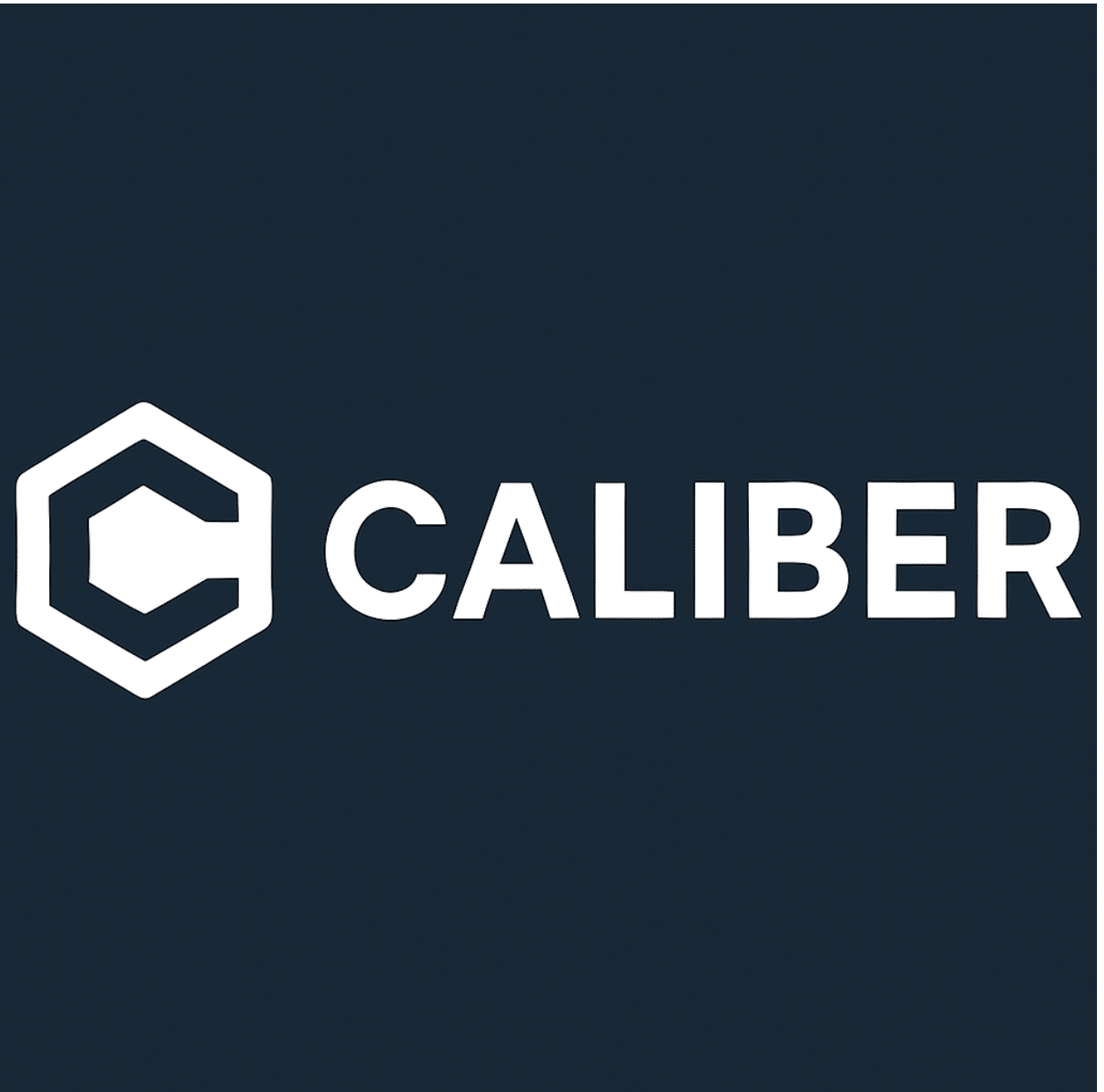
Caliber blends algorithmic planning with real experts on standby. The free tier builds a strength-focused program the moment you finish a short assessment, then tweaks weight or volume every time you log a set. When the data show missed sessions or stalled lifts, a certified trainer reviews your numbers and sends a custom adjustment within a few hours.
The approach appears to work: members who upgrade to coaching improved body-composition scores by an average of 20 % in 12 weeks, according to Caliber’s 2025 outcomes report. The iOS app holds a 4.4-star rating from about 7,000 reviews as of August 2025. A limited free plan lets you log unlimited workouts, while Caliber Plus costs $19 per month and one-on-one coaching starts at $199 per month.
Choose Caliber if you want AI convenience plus a real coach who can refine form, mindset, and nutrition. Skip it if you dislike human check-ins or need yoga-centric programming; the platform’s focus is resistance training and body recomposition.
Fitbod – adaptive strength training coach
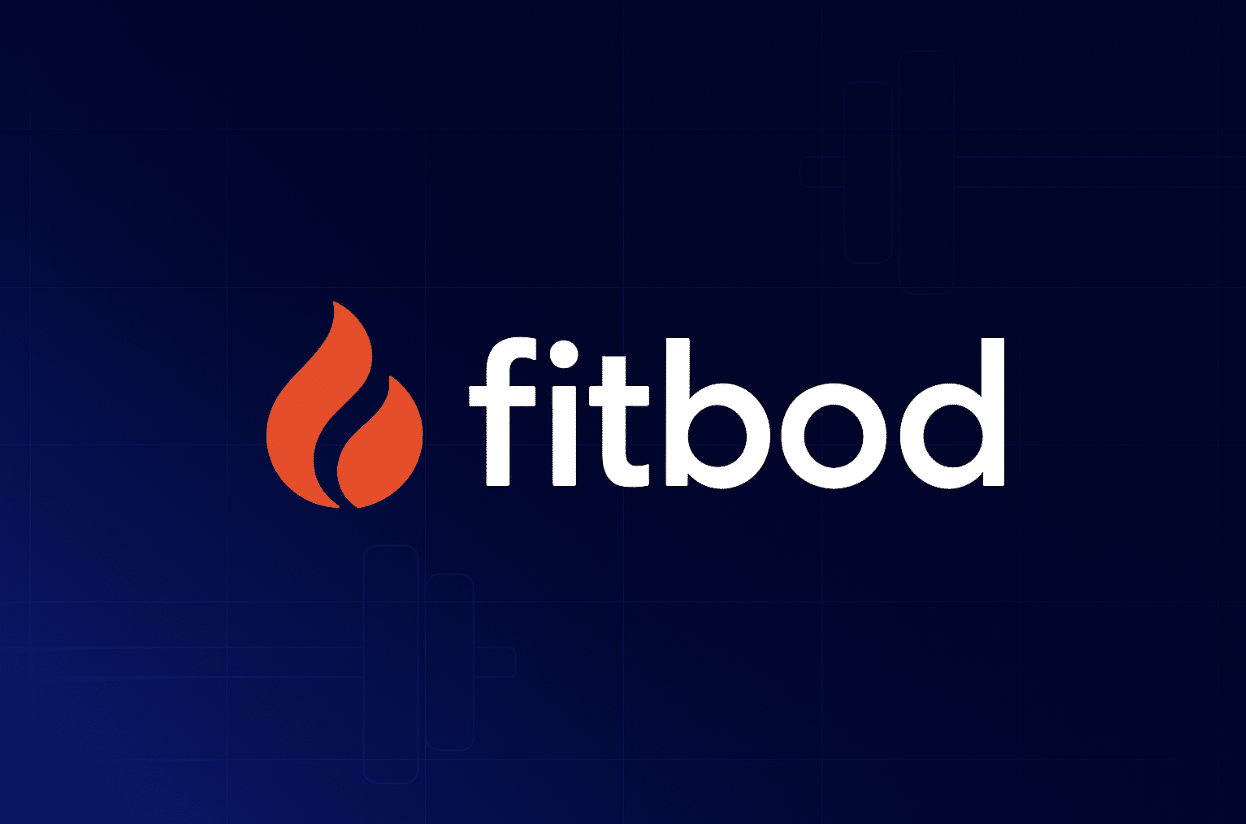
Open Fitbod and it behaves like a seasoned spotter: it asks what equipment you have and how the last lift felt, then builds your next session on the fly. Miss a rep? Load drops. Nail the set? The app adds about five pounds or an extra rep to keep progressive overload moving.
After each workout you tag which muscles feel spent. According to Fitbod, the algorithm is trained on more than 157 million logged workouts and 15 million downloads as of April 2025. Charts track one-rep-max trends, and quick-tap logging keeps the interface simple.
Ideal for lifters seeking data-driven strength gains without writing their own program; less helpful if you want guided classes or cardio variety. Fitbod runs about $15.99 per month (annual billing) on iOS and Android and offers a limited free trial for new users.
At-a-glance comparison
| App |
Ideal user |
Key adaptive trigger |
Platforms |
Free tier / trial |
Typical monthly price* |
| Hoola |
Holistic home wellness |
Adjusts classes and calories in one loop |
iOS, Android (early access) |
7-days trial |
$29.99 |
| WallPilates |
Low-impact wall-based Pilates and joint-friendly toning |
Adjusts reps/holds in real time using the signup quiz and “smart AI fitness coach” feedback |
iOS, Android |
28-day challenge |
$38.95 |
| JuggernautAI |
Competitive powerlifters |
Recalculates weights via AMRAP and RPE |
iOS, Android |
14-day trial |
$34.99 |
| BodBot |
Mixed-goal, injury-aware users |
Reschedules missed sessions and swaps painful moves |
iOS, Android |
Limited plan |
$9.99 |
| Aaptiv Coach |
Audio-guided cardio fans |
Re-curates class list from one-tap session rating |
iOS, Android |
7-day trial |
$14.99 |
| Caliber |
Strength and accountability focused |
AI plan plus coach review when trends stall |
iOS, Android, Web |
Unlimited logging |
$19 (AI) / $199 (coach) |
| Fitbod |
Gym strength seekers |
Adjusts sets and load after each log |
iOS, Android |
3 workouts |
$15.99 |
Prices reflect standard monthly rates when billed annually, as of October 2025; check each site for current promotions.
Make your AI coach work overtime
Smart software is only half the equation; consistent input from you is the other. Three habits lift any tracker from clever gadget to genuine coach:
- Report truthfully. When the app asks if a set feels easy or brutal, answer honestly. The algorithm recalibrates on that data, so overstating effort slows progress.
- Log immediately. A 2016 analysis published on PubMed of more than one million digital workout records found that people who recorded activity the same day lost an extra 0.38 percent of body weight per month compared with infrequent loggers. Fresh details—weights, reps, even mood, and consistent tracking nutrition and fitness—feed the model before memory fades.
- Respect recovery cues. If the planner schedules mobility work or a lighter day, treat it like a PR attempt. Reliable recovery signals tell the AI you are ready for the next load jump instead of flirting with burnout.
Conclusion
AI workout trackers have advanced from gimmicks to genuinely adaptive coaches, reshaping not just your next set but also your recovery, nutrition, and long-term progression. Our seven picks highlight how specialized the field has become, whether you need joint-friendly wall Pilates, competition-ready powerlifting cycles, or an all-in-one studio with calorie guidance. The common thread is real-time feedback: the more consistent and honest your input, the smarter each algorithm becomes. While prices and feature depth vary, every option here beats a one-size-fits-all PDF plan. Choose the platform that aligns with your goals, equipment, and learning style, then let the data drive your best year of training yet.
Frequently Asked Questions
- What exactly is an AI workout tracker?
An AI workout tracker is a fitness app or wearable that records your exercises, recovery scores, and daily habits, then automatically adjusts future workouts—sometimes even nutrition targets—based on that incoming data.
- How is an AI tracker different from a standard fitness app?
Traditional apps give you static plans or generic class libraries; AI trackers adapt set-by-set (or meal-by-meal) using algorithms that learn from every rep, rating, and missed session, so your program stays appropriately challenging.
- Are AI workout trackers beginner-friendly?
Yes. The top picks in this list—BodBot, Hoola, WallPilates, and others—begin with short assessments and scale intensity up or down, making them safe starting points even if you’re new to structured training.
- Which option is best for serious strength gains?
For barbell-focused lifters or competitive powerlifters, JuggernautAI and Fitbod stand out. Both adjust load and volume in real time, but JuggernautAI layers in meet-prep cycles and deeper powerlifting analytics.
- I’m short on space and equipment. What should I try?
WallPilates turns any clear wall into a Pilates reformer for low-impact toning, while Freeletics delivers body-weight circuits you can do on a living-room rug—no gear required.
- Do any of these apps handle nutrition, too?
Hoola pairs adaptive class scheduling with an AI calorie engine that raises or lowers daily intake, and many trackers (e.g., BodBot, Caliber) let you log macros even if they don’t auto-adjust targets.
- How private is my workout data?
Most brands now process data on-device or promise end-to-end encryption. Still, review each app’s privacy policy and opt-out features before syncing wearables or importing health graphs.
- Can an AI tracker replace a human coach?
For basic guidance and day-to-day adjustments, yes. But if you need in-depth technique feedback or accountability, hybrids like Caliber combine algorithmic plans with certified trainers who review your logs.
P.S. Before you zip off to your next Internet pit stop, check out these 2 game changers below - that could dramatically upscale your life.
1. Check Out My Book On Enjoying A Well-Lived Life: It’s called "Your To Die For Life: How to Maximize Joy and Minimize Regret Before Your Time Runs Out." Think of it as your life’s manual to cranking up the volume on joy, meaning, and connection. Learn more here.
2. Life Review Therapy - What if you could get a clear picture of where you are versus where you want to be, and find out exactly why you’re not there yet? That’s what Life Review Therapy is all about.. If you’re serious about transforming your life, let’s talk. Learn more HERE.
Think happier. Think calmer.
Think about subscribing for free weekly tools here.
No SPAM, ever! Read the Privacy Policy for more information.
One last step!
Please go to your inbox and click the confirmation link we just emailed you so you can start to get your free weekly NotSalmon Happiness Tools! Plus, you’ll immediately receive a chunklette of Karen’s bestselling Bounce Back Book!


 AI workout trackers have shifted from novelty to necessity. In 2025 these pocket-size coaches record every rep, gauge recovery, and rewrite tomorrow’s plan before you towel off. In February 2025 Peloton rolled out its Peloton IQ engine to every new Bike, Tread, and Row, serving real-time form cues and class suggestions based on your last five minutes of movement. Yet many apps still wear an “AI” label without adapting at all. After months of testing, we narrowed the field to seven trackers that truly respond to your progress—and we’ll introduce them below.
AI workout trackers have shifted from novelty to necessity. In 2025 these pocket-size coaches record every rep, gauge recovery, and rewrite tomorrow’s plan before you towel off. In February 2025 Peloton rolled out its Peloton IQ engine to every new Bike, Tread, and Row, serving real-time form cues and class suggestions based on your last five minutes of movement. Yet many apps still wear an “AI” label without adapting at all. After months of testing, we narrowed the field to seven trackers that truly respond to your progress—and we’ll introduce them below.






